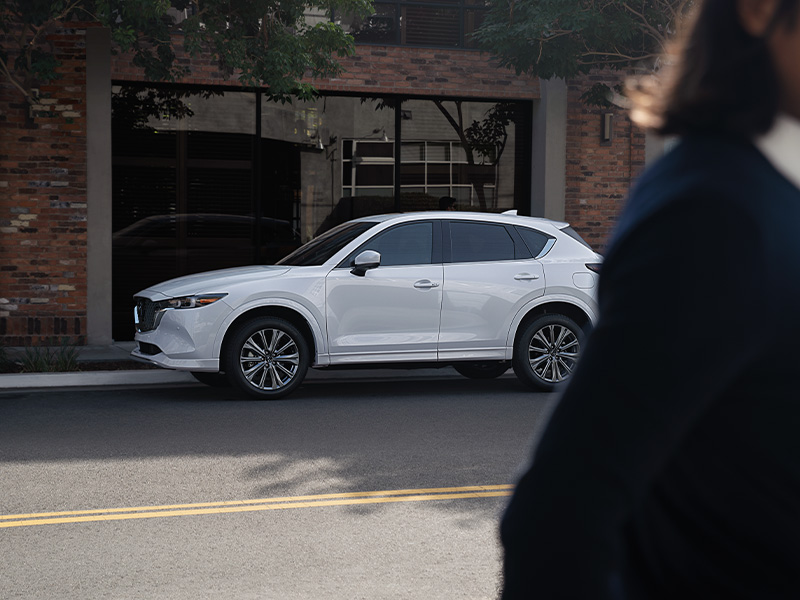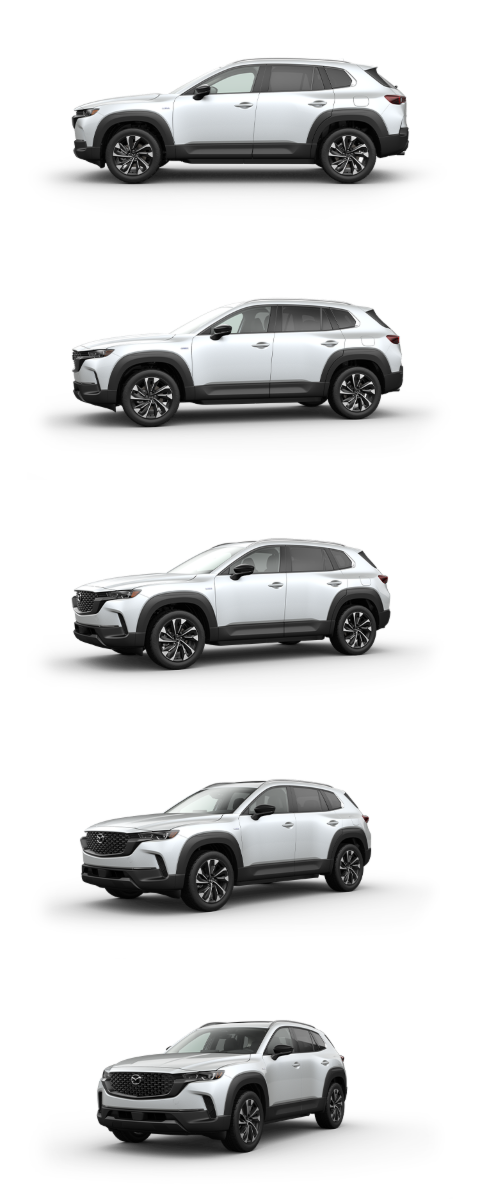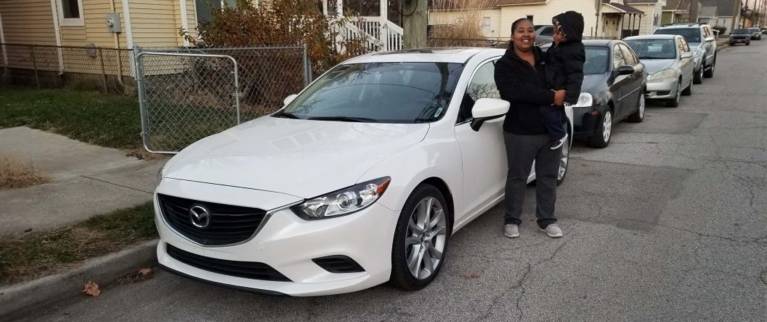WHAT DOES IT MEAN TO FINANCE A CAR?

Financing a vehicle is the process of borrowing money from a bank, credit union, or dealership to purchase your car, and paying that money plus interest back in installments over a certain period of time. In essence, it allows you to drive your new ride off the lot as soon as possible, even if you don’t have the cash on hand to pay for it all at once.
The financing process can be involved, but a little preliminary research and preparation can go a long way. In this article, we break down some of the most important steps and considerations for financing a vehicle, including factors that can affect your loan payments.
What does financing a car mean?

Financing is an alternative to paying for a new or used car in full, with cash. It's a popular choice among car buyers for several reasons:
- Financing allows you to spread the cost of the car over several months or years instead of having to pay for your car all at once.
- Financing can make it possible for you to afford a higher-end car than you would if you were required to pay for the entirety of a car upfront.
- Financing gives borrowers the opportunity to improve their credit scores since timely payments demonstrate responsible financial behavior.
- When you reach the end of your financing term, you will own the car — as opposed to when you reach the end of a lease term.
Successfully financing a car means making a commitment to monthly payments. Missing these payments will hurt your credit score and, in extreme cases, result in the repossession of your vehicle.
As with most purchases, you should expect the value of your financed vehicle to depreciate with time. You’ll want to make sure your payment schedule allows you to avoid going upside-down on your loan (wherein you still owe more on the car than what it is worth).
How does financing a car work?
1. Figure out your budget
To get an idea of what your car budget should be, analyze your current income, existing expenses, and any savings you have available for a down payment. Be pragmatic about what you can comfortably afford as a monthly car payment while still covering your other financial obligations. Remember to factor in added costs like insurance, car maintenance, and fuel.
Lending agencies will only approve you for a certain amount of money that they determine you can pay off over time, so it’s important to be realistic here. Online budget calculators and financial planning tools, like the Mazda Payment Estimator, can be incredibly useful in determining what your ideal budget should be.

2. Choose between direct lending or dealership financing
When it comes to financing a car, you have two primary options: direct lending or dealership financing.
Direct lending
Direct lending involves securing a loan directly from a bank, credit union, or online lender before you visit a dealership. Once you’re approved for a loan, the lender will provide you with a loan agreement specifying the loan amount, interest rate, and repayment terms. You then take this loan to a dealership, where you can use your pre-approved amount as a basis for negotiating car prices.
After a price is set, the dealership will work with your lender to finalize the financing details. You’ll sign some paperwork, and the lender will then send the funds to the dealership. From this point on, you’ll make regular payments to the lender until the loan is paid off.
This type of lending offers several advantages. First, direct lenders offer pre-approved financing terms that you can use to shop around and find the ideal loan. This also gives you a clear budget to think about before heading to the dealership and strengthens your negotiating power to help get you the best deal.
Dealership financing
Dealership financing involves obtaining a loan through the car dealership itself. When you express interest in financing, the dealership will present you with various loan options from partnering lenders and discuss what you need to buy a car through financing, including financial reports, identification, and other important documentation. You can choose the loan that best suits your needs based on the terms offered by the dealership's partner lenders. Once you select a loan, the dealership will handle the paperwork, and you'll make payments directly to the lender according to the agreed-upon terms.
This financing option also comes with its own set of advantages, including convenience. The dealership’s finance team takes care of most of the paperwork and sources the best financial options for you from their partner lenders.
Dealerships also tend to have special financing offers and incentives provided by the vehicle manufacturer, such as low interest rates for qualified buyers or cash rebates. Some financing packages from dealerships include additional perks, such as extended warranties and free maintenance services.
However, dealerships don’t always offer the most competitive interest rates, so researching offers from both dealerships and direct lenders is a smart way to secure the best financing option.
3. If possible, make a down payment
While not always required, making a larger down payment will reduce the amount you need to finance, resulting in lower monthly payments and less interest over the life of the loan. If you have a less-than-perfect credit history, a hefty down payment may strengthen your loan application and increase your chances of approval.
4. Start paying your car payments
Car loan payments are usually made on a monthly basis and consist of both the principal (the amount you borrowed) and interest (the cost of borrowing). The lender will provide you with a payment schedule outlining the total number of payments required to pay off the loan so you can keep track. If your financial status changes and makes it more difficult to pay your monthly bill, it’s important to contact your lender as soon as possible to explain the situation and ask about alternative payment plans.
5. Pay until you own your car or decide to trade it in
You'll continue making payments until you've paid off the entire loan amount. At that point, you'll receive the car's title, indicating that you own the vehicle outright. You’ll receive a bill of sale that delineates the terms of your purchase, including the vehicle's make, model, and VIN (Vehicle Identification Number), the agreed-upon price, and any additional fees or taxes. This bill of sale is an essential document, serving as proof of your purchase and the ownership transfer from the dealership to you.
Alternatively, you can decide to trade in your car and use its value toward the purchase of a new one, starting the financing process all over again.

Factors that affect your loan payments
For better, more informed decision-making, it’s essential to have a good grasp on these factors that can influence the overall cost of your new vehicle.
1. Price of the car (MSRP + any additional features)
The price of the car, which includes the Manufacturer’s Suggested Retail Price (MSRP) along with any optional features or upgrades you choose, significantly determines your loan amount. For example, a more expensive car will result in a higher loan amount and, consequently, higher monthly payments (unless you make a substantial down payment).
To find the right balance between affordability and desired features, keep your budget and driving needs a priority.
2. Down payment
As mentioned earlier, a larger down payment reduces the loan amount, resulting in lower monthly payments. A substantial down payment may also enhance your loan approval chances since the more you pay upfront, the less money you’ll have to borrow, and the smaller the financial risk is for lenders.
3. Annual Percentage Rate (APR)
The APR represents the annual cost of borrowing and includes the interest rate as well as any fees associated with the loan. A lower APR means lower overall interest costs and more affordable monthly payments. It’s a crucial figure to consider when evaluating loan offers, as even a slight reduction in APR can yield notable savings over the life of your loan.
4. Credit score
Lenders use your credit score to gauge your creditworthiness, with higher scores typically leading to lower interest rates. Therefore, building and maintaining a strong credit history can help make any car purchase more budget friendly.
5. The length of your loan (loan term)
The loan term, or the number of months or years over which you repay the loan, affects your monthly payments. Longer loan terms result in smaller monthly payments but may lead to higher overall interest costs. Conversely, shorter loan terms may yield higher monthly payments but help you save on interest expenses.
Deciding on the right loan term involves finding a balance between what you can comfortably afford each month and your desire to minimize the total cost of the loan.
6. Shopping around
It’s not wise to immediately go with the first financing offer you receive. Shop around and compare loan offers from multiple lenders to find the most favorable terms for your situation.
7. Pre-approval
Getting pre-approved for a car loan can give you a clear budget when shopping for a car, making the buying process smoother and more efficient.

Is it better to finance or lease a car?
The decision between financing or leasing a car largely depends on your individual circumstances, needs, and preferences. Both options have their advantages and drawbacks, so it's essential to weigh them against your unique situation.
Financing a car
When you finance a car, you're working toward full ownership. This means that once you've paid off the loan, you have an asset with no more monthly payments.
Financing pros include:
- Ownership: Once the loan is paid off, the title is transferred to you and the car is officially yours.
- No mileage limits: You can drive as much as you want without worrying about the mileage restrictions common with leasing contracts.
- Customization: You can personalize your car as you see fit since you’re paying to own it.
Financing cons include:
- Higher monthly payments: Monthly payments for financed cars tend to be on the steeper side compared to leasing.
- Maintenance costs: Taking care of maintenance and repair expenses becomes your responsibility, particularly as the vehicle ages out of its warranty.
Leasing a car
Leasing a car is a short-term rental arrangement where you pay to use a vehicle for a specified period, typically a few years, with the option to return it or purchase it at the end of the lease term.
Leasing pros include:
- Lower monthly payments: Lease payments are usually lower than those for financed vehicles.
- Newer car options: You can drive a newer car with the latest features every few years as your lease term ends.
- Warranty coverage: Most leased cars are bundled with warranty protection, reducing maintenance costs.
Leasing cons include:
- No ownership: You don't own the car at the end of the lease term; you must return it or buy it at the predetermined residual value.
- Mileage restrictions: Lease agreements often come with mileage limits and exceeding them can result in additional charges.
- Limited customization: You may have restrictions on customizing or modifying the leased vehicle since you’re paying to use it, not own it.
Ultimately, the choice between financing and leasing depends on your priorities, budget, and how you plan to use the car.
Additional financing considerations
Do I need a certain credit score to buy a car?
While there is no specific credit score required to buy a car, having a higher credit score can improve your financing options. Lenders typically categorize credit scores into ranges such as poor, fair, good, and excellent. The higher your credit score, the more likely you are to qualify for lower interest rates and more favorable loan terms.
A 2024 Report found that the average credit score for a used-car loan was 686, while the average score for a new-car loan was 755, but these numbers are not set in stone.
To improve your chances of getting a better loan rate, consider taking steps to boost your credit score, such as paying down existing debt, making payments on time, and avoiding new credit inquiries before applying for a car loan.
Does financing a car build credit?
Yes, financing a car can positively impact your credit score if you make timely payments and manage the loan responsibly. When you finance a car, the lender reports your payment history to the major credit bureaus (Equifax, CARFAX, and TransUnion).
However, missing payments or defaulting on your car loan can have adverse effects on your credit score. So, while financing a car can be a valuable tool for building credit, it's crucial to manage your loan wisely to reap the benefits.
Finance your next vehicle with Mazda Financial Services (MFS)
Mazda offers a variety of financial services through MFS, from financing programs as well as special offers and incentives to accommodate different budgets and credit profiles. From our newest lineup to our rigorously inspected Certified Pre-Owned vehicles, we have the ideal car to match your daily needs and your hunger for adventure.
Get started with our online build and price tool or visit a Mazda Dealer near you to test-drive your next vehicle today.

This article is intended for general informational purposes only and is based on the latest competitive information available at the time of posting. Information herein is subject to change without notice and without Mazda incurring any obligations. Please review a variety of resources prior to making a purchasing decision. Visit Resource Center for more articles.




















